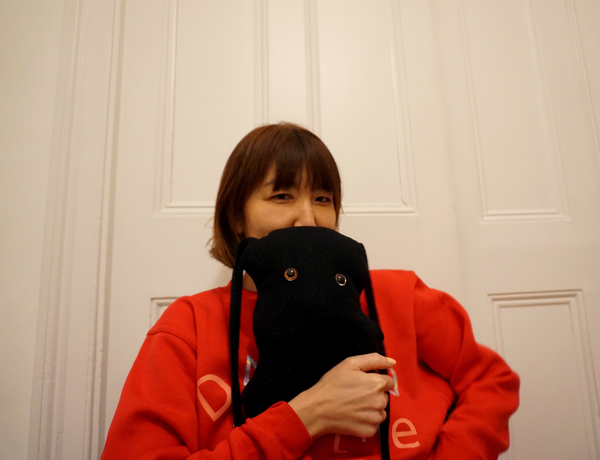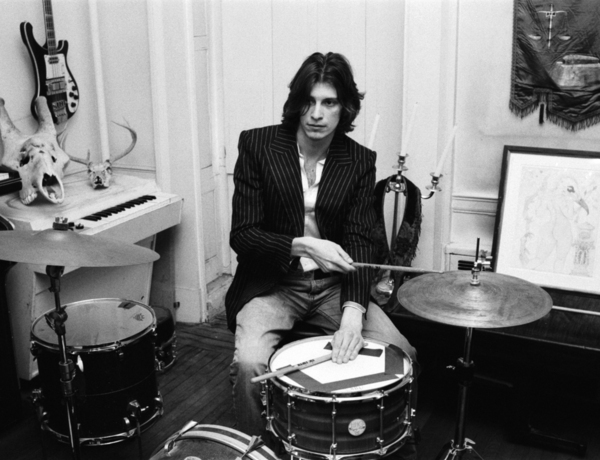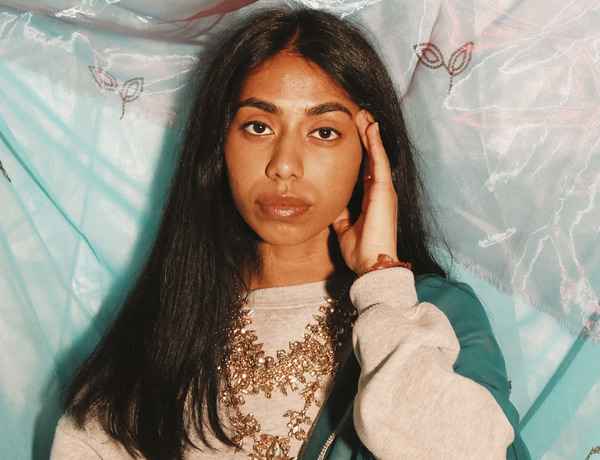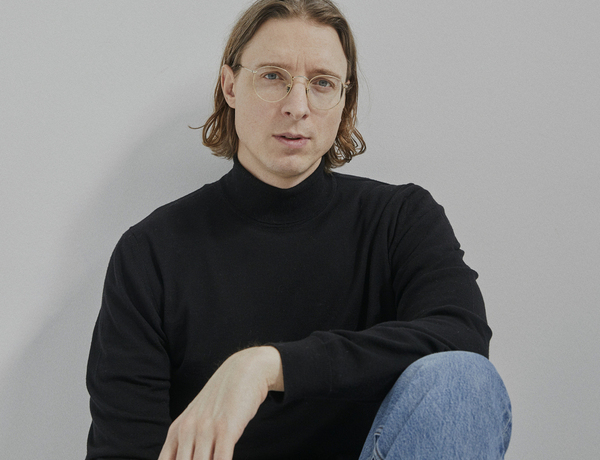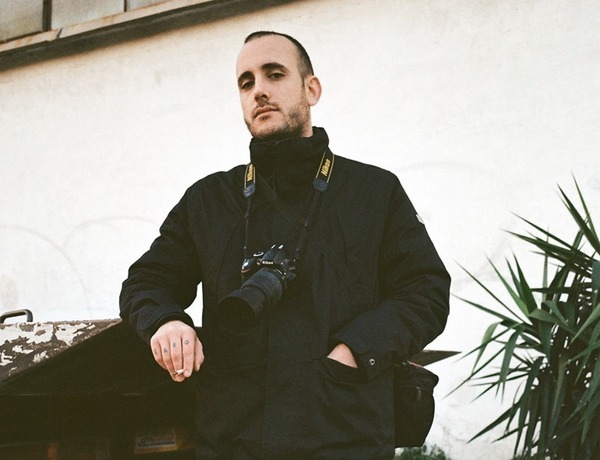Interview with Reeme Idris
Could you tell us a bit about yourself?
I’m an Irish-Sudanese freelance writer from London; I contribute ideas and interviews for various independent publications about people and places, art and design. I have a background in fashion styling and event production - sometimes I miss the physical aspect of those projects, but I feel a lot happier with the freedom and flexibility have (as a writer) to cover what I enjoy the most.
I’m also a newly qualified early years teacher; I co-own a small children’s day nursery with my family, so now I help to lead our pedagogy and practice. I didn’t expect there to be much of a crossover between the two occupations - though play, creativity and culture are central themes of both - but whether adults or children, I think you need the same respect and consideration to gain enough trust in a short time to learn more about their inner worlds.
What initially inspired you to pursue a career as a freelance writer?
I grew up in a working-class area, access to the arts was limited and infrequent. Like many people, I wasn’t exposed to the knowledge or experience that propels a career in the cultural or creative sectors. I had graduated with a Law degree, and while I knew early on that practising as a solicitor wasn’t for me, I’ve always felt comfortable working with words. So I took an internship as a trends researcher when I later transitioned from fashion styling and event production, and it felt like coming home.
Once I discovered titles like Apartamento, Hobo and The Alpine Review, I was hooked on the cleverness and creativity of the independent magazine scene. Maybe it’s desire based on a perceived hunger, but when I find somewhere, someone or something interesting and beautiful, I want to share it in some small way. If I can do that with words, in a well presented story, then I’m happy.
How would you describe your creative process?
I’m not sure I really have one, since the process of putting together a piece feels more studious than creative. I view myself more as being in appreciation of creative people, remaining open and sensitive to their point of view.
However, I think travelling somewhere new, especially alone, is when it’s easiest to appreciate beauty in all its forms. So if repeating these circumstances can be considered a creative process, I’ll claim that.
How much does your city and surroundings affect your creative output?
Sometimes London feels like one big train station, most people you meet are usually transiting, whether they stop for one week or ten years. I think being accustomed to this constant flow and change exercises your gut instinct, and appreciation for impermanence.
I live on the outskirts, very near Epping Forest and I have a garden-facing room that I love to work in. Sure, I could write from any place where a laptop doesn’t offend, but I prefer this quiet home office, where I can use a PC without shame, plus the trees are great company. The quietude of my surroundings has balanced the abundance of activity in the city well enough so far, for discovery and reflection.
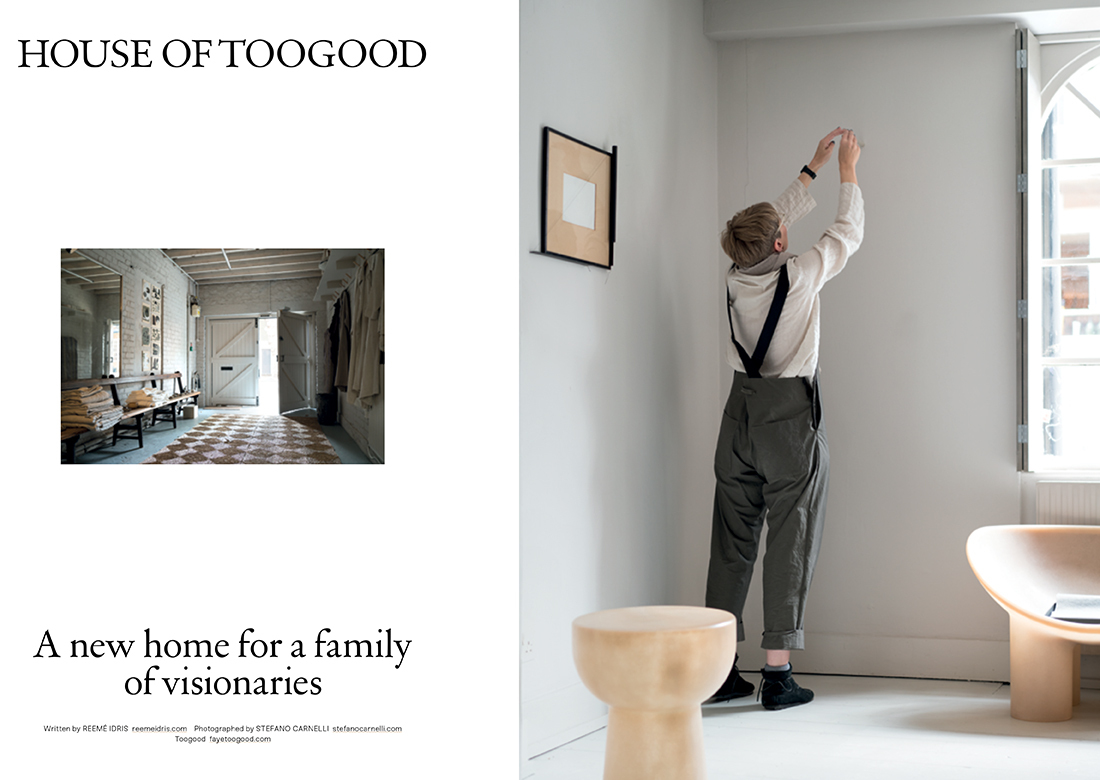
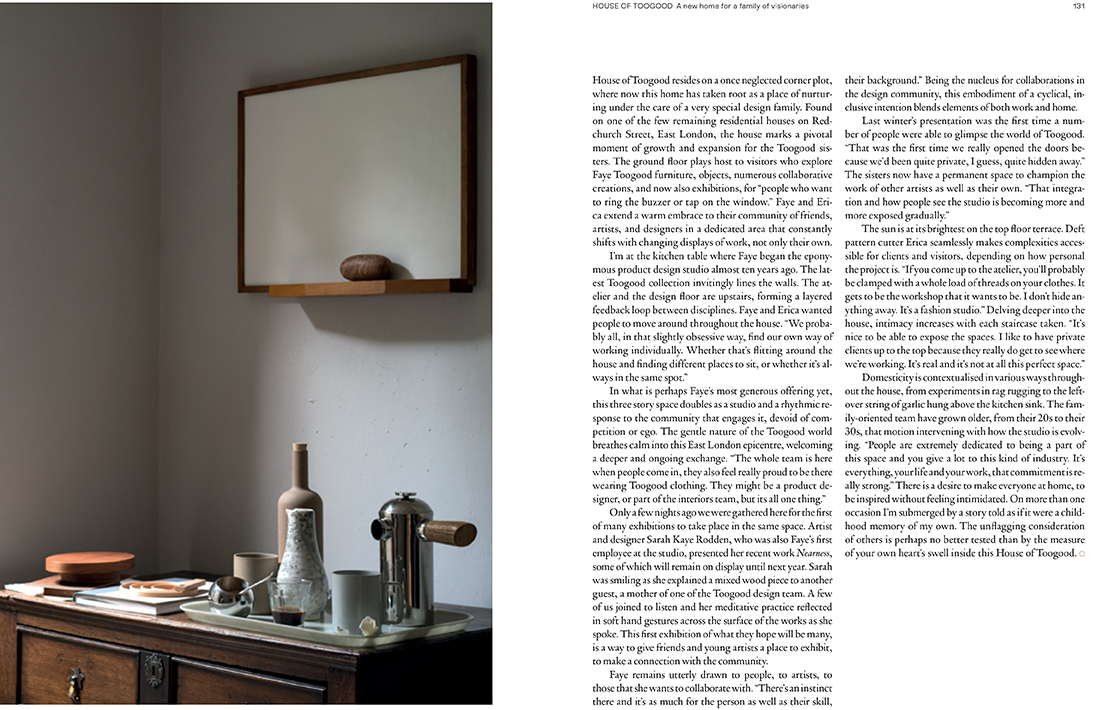
What do you struggle with the most in terms of working and living in a city like London?
The expense has become insane, absolutely insane. London can’t remain fertile ground for a diverse creative sector if people can’t afford to live (let alone live well) or be independent, if that’s what they wish.
I often miss the small streets and terraces of other smaller cities. London is so big that it squeezes out opportunities for spontaneity, you need to plan in advance more so, which I struggle to enjoy.
The responsibility of the council in every city is to provide a solid foundation of design, art and cultural facilities, is that evident in London?
Yes, although there is a huge disparity between boroughs. However, London is a great place to access a lot of - often free - facilities and experiences. The problem is, our cost of living is so high that many families, and people in general, are too stretched and strained to make the most of what is on offer, especially if it requires a bit of research or travel.
Do you think it is also the responsibility of the artist/creative to improve the quality of people's lives in their city?
I’m not sure if I would call it a responsibility, but as a side effect, I can’t think of a better one..
Can you tell us about any current or future projects that you are particularly excited about?
I’m at various stages of three articles based on different subject matter - one design, one art and another travel - however all of them have an incredibly smart, creative person at the centre of the story, with deep respect for each of their environments.
I’d love to write more on play and cultural capital. I think The Playground Project’ by Gabriela Burkhalter is a great example showing how childhood, design and public space has converged.
If you could add or change something about London, what would that be?
We’re in dire need of new leadership. It seems we have a drought of talent and intelligence in politics, so let’s say electoral reform.
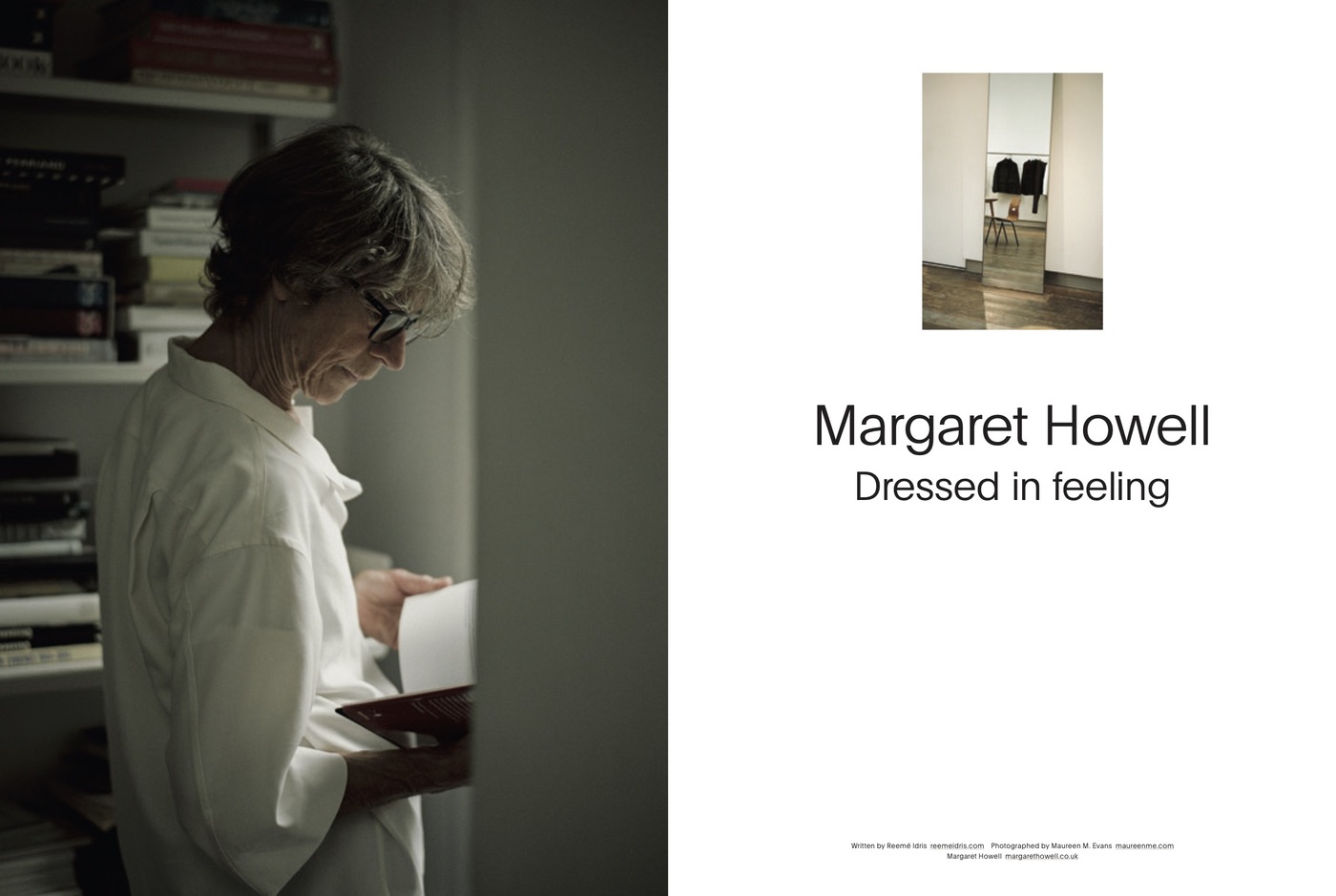
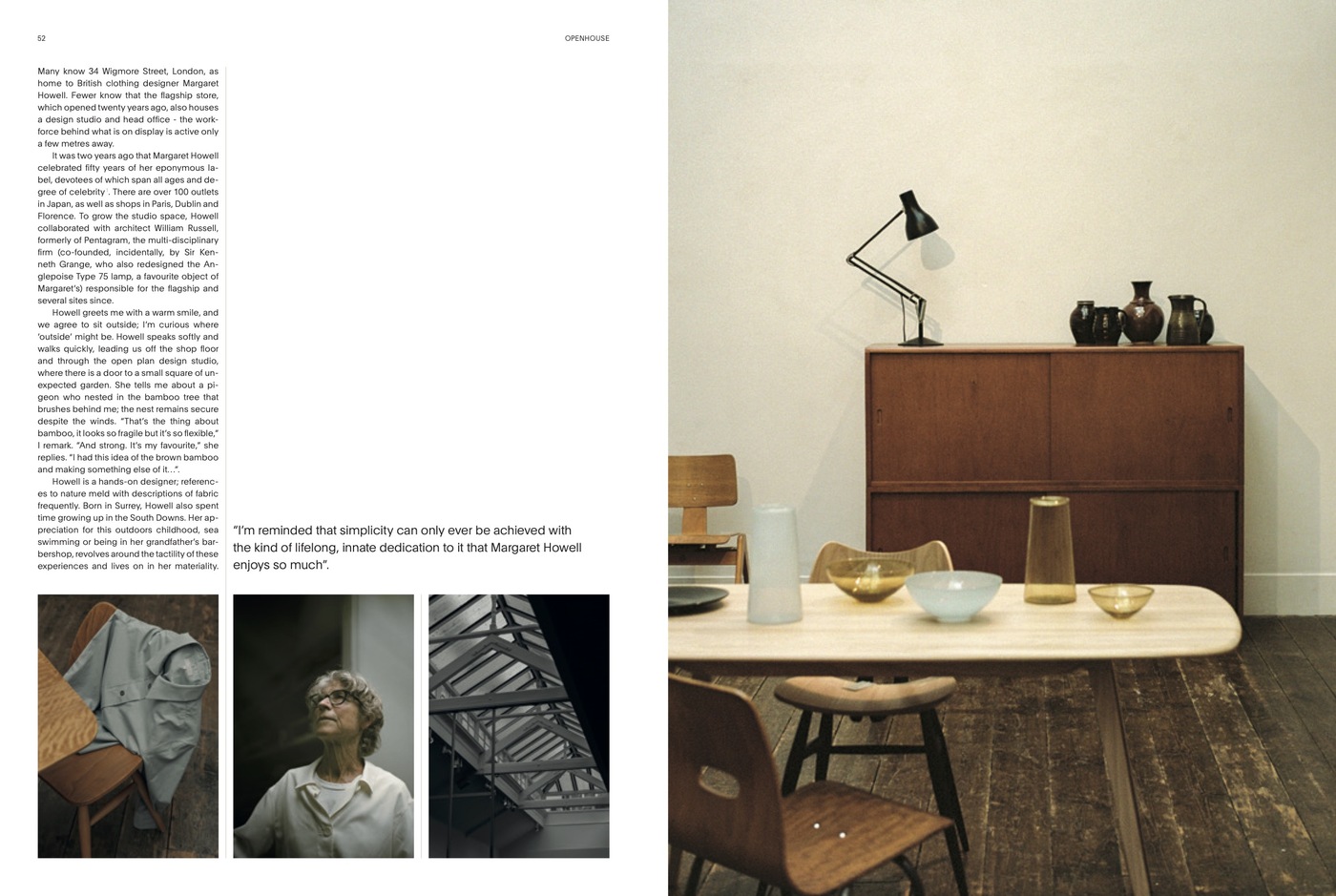
If you could choose any artist/creative to collaborate with, who would that be and why?
Jack Self is an architect and editor-in-chief of Real Review, which I’ve gifted to people countless times, it’s a magazine like no other. I was due to submit a piece on one of his favourite objects for a different magazine, however it shortly folded thereafter; hopefully another opportunity will present itself soon.
Nikki Giovanni, the activist, poet and writer, would be a dream come true to interview. ‘Gemini’, her autobiography written in her twenties, has the same voice as her current biography, at 71, I want to know where that kind wisdom and self confidence comes from, but she would probably hate the question.
What do you do to switch off?
I walk my Bernese Mountain Dog, he’s a very handsome plodder and likes stopping at cafés, which suits me fine as I’ll read a book while he makes new friends. I love dancehall or reggaeton music to sweat to. Otherwise I take any opportunity to be in water - whether its a bath or the ocean, it always works.
What does home mean to you?
The place you can relax most easily and focus most intensely. A light, airy and well-looked after space with a small number of carefully chosen things that provide comfort and joy. But most of all its somewhere shared with a person, or people I love very much, who don’t mind my incessant hoovering.
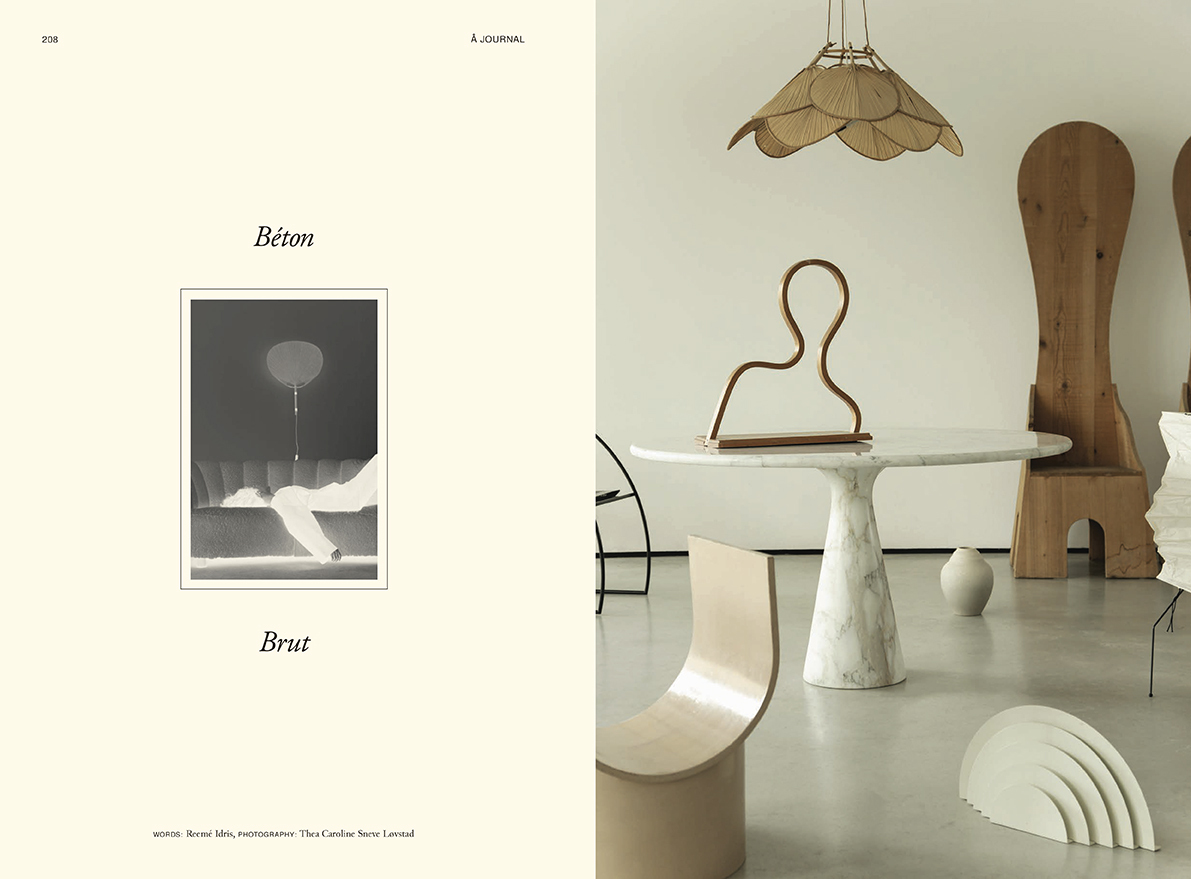
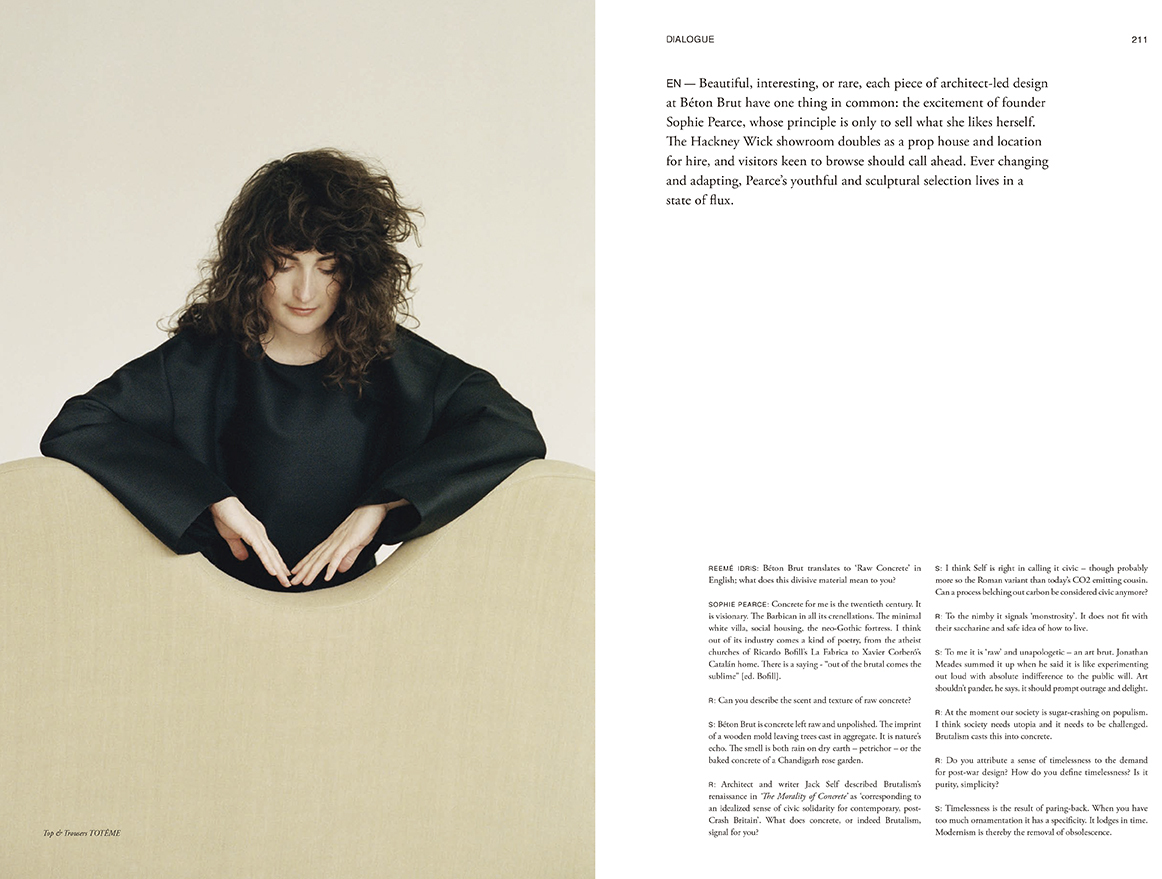
Describe the perfect day for you in London.
A morning walk in Victoria Park, early lunch at Café Cecilia, followed by another walk down the canal for a drink at Towpath and some backgammon. A browse in Tenderbooks or Daunt Books and maybe a visit to the ICA. Dinner at Café Deco, then we go find some good music, maybe at Louie or Brilliant Corners.
Sometimes people relate a specific smell to the city they live in or the place they grew up, does London evoke a personal smell to you?
I honestly can’t think of one! But I was born and raised in London, so perhaps it’s all too familiar…
If you weren’t living in London and could choose any city to live in where would that be, and why?
With a brick and mortar small business, it’s a bit impossible to move too far away, but I spend a lot of time in Paris (even though I have no real hope or intention of becoming fluent in French) so I could swap my current time split around. You get to walk so much more in Paris, I’m much less of a homebody there, and it’s a lot more welcoming as a city than people would have you believe. .
reeme idris - mixtape
london by Reeme Idris
A selection of places in London - recommended by freelance writer, Reeme Idris. See Reeme's citylikeyou profile page here
More Interviews
